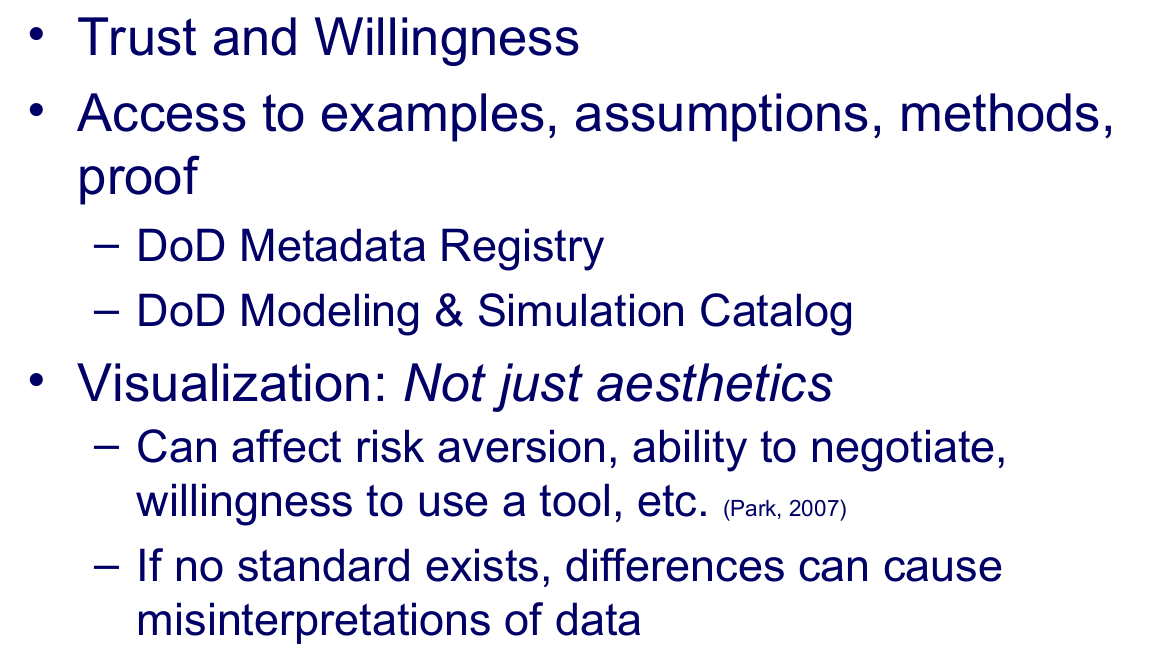Jack B. Reid
jack@jackbreid.com
Github profile: jackreid Hosted on GitHub Pages — Theme by mattgraham
Digital Twins & Digital System Models: Non-Technical Challenges & Research Needs
Spring 2016
While working at SEAri, in addition to my actual masters thesis work, I worked on a number of side projects involving the defense acquisition process. One of these was an examination of some of the non-technical challenges surround digital twins and digital system models.
The Digital Thread (DTh) is a proposed framework for integrating technical data, costs, predictions, and other accumulated knowledge over the course of design, development, and operation of a system. It is intended to provide ready access to usable information for decision makers during the design process. It includes tools such as tradespace analysis and visualization tools.
A Digital Twin (DTw) is an integrated model of an as-built product including physics, fatigue, lifecycle, sensor information, performance simulations, etc. It is intended to reflect all manufacturing defects and be continually updated to include wear-and-tear sustained while in use. The goal is to more effectively and safely manage the individual product as well as to facilitate investigations of potential design or operational changes on the health of the system.
The Digital System Model (DSM) is essentially the proposed product of Model-Based Engineering. It is the integrated model of all technical data that is the general case out of which individual Digital Twins will be constructed, and is the technical grounding that the decision-making analytics of the Digital Thread refers to.
Most of the non-technical challenges revolve around intellectual property and generating buy-in / trust. For more details, see the a conference paper and presentation.



